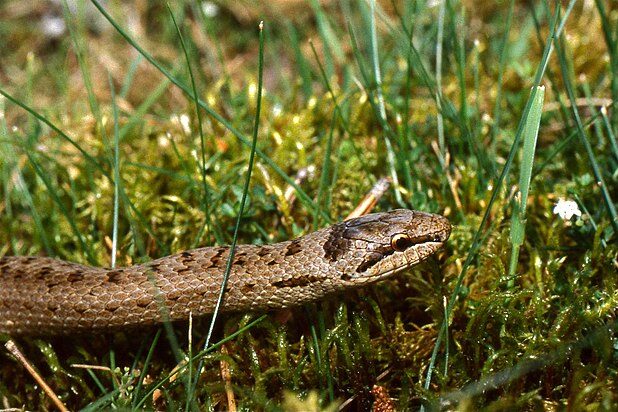
Wildlife volunteers are celebrating the successful return of smooth snakes to the Pebblebed Heaths in east Devon.
The Royal Society for the Protection of Birds (RSPB) said numbers of the rare, non-venomous reptiles have continued to rise since 2023, with 39 sightings recorded last year — the highest since monitoring began.
The species was first reintroduced to the area in 2009, when 17 snakes were relocated from Dorset and Hampshire.
According to the RSPB, the east Devon population is now not only increasing but has formed a “self-sustaining colony” — a major milestone for a species once made scarce across the UK by habitat loss.
Volunteers Liz and Roger Hamling have been monitoring the snakes for 15 years as part of the ongoing survey work on the heathland.
Mrs Hamling said she had walked the survey routes so often she now knew them “off by heart,” while Mr Hamling has taken more than 150 photographs of the snakes since 2010 to help track population changes.
“Around the Pebblebed Heaths we have smooth snake refuges – a sheet of corrugated iron laid flat on the ground, under which smooth snakes like to hide and keep warm,” she said.
“The head of a smooth snake has a distinctive heart-shaped marking and combined with the first few segments of their bodies, which also have patterns, these markings are unique to each individual snake,” he said.
The RSPB thanked the volunteers and staff who help manage and protect the Pebblebed Heaths, describing their dedication as vital to the project’s success.
Mrs Hamling said it was “such a privilege” to look after the reptile.
“I just love being up on the heath, there’s so much to see up there.
“It’s just lovely to see how much the heath has positively changed over the years due to the wonderful work of all our volunteers.”
——————————————————————————
At Natural World Fund, we are passionate about restoring habitats in the UK to halt the decline in our wildlife.

